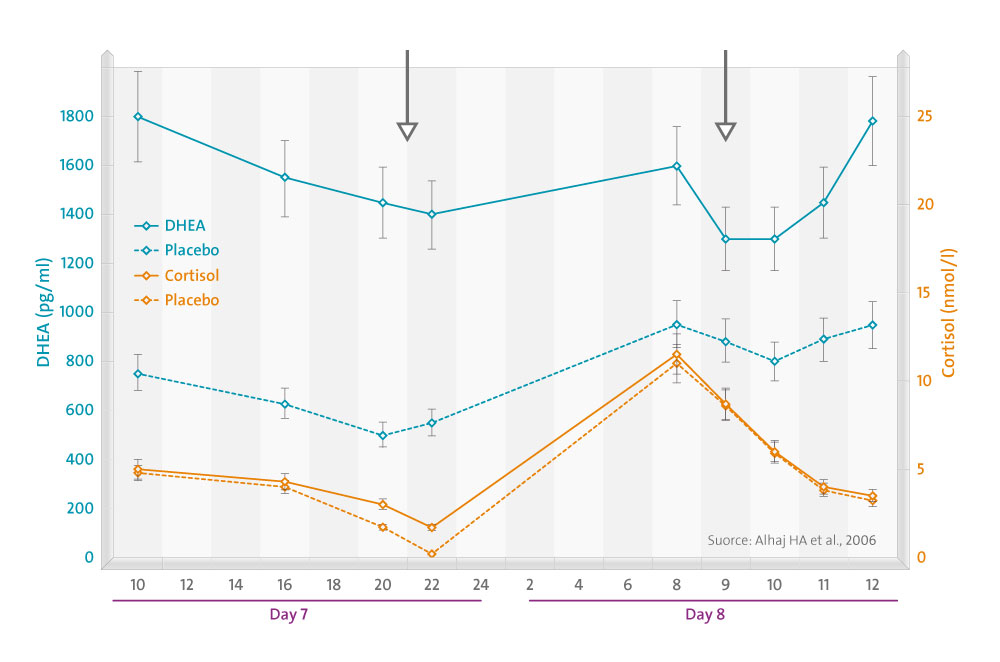Rationale
Dehydroepiandrosterone (DHEA) has been reported to enhance cognition in rodents, although there are inconsistent findings in humans.
Objectives
The aim of this study was to investigate the effects of DHEA administration in healthy young men on episodic memory and its neural correlates utilising an event-related potential (ERP) technique.
Methods
Twenty-four healthy young men were treated with a 7-day course of oral DHEA (150 mg b.d.) or placebo in a double blind, random, crossover and balanced order design. Subjective mood and memory were measured using visual analogue scales (VASs). Cortisol concentrations were measured in saliva samples. ERPs were recorded during retrieval in an episodic memory test. Low-resolution brain electromagnetic tomography (LORETA) was used to identify brain regions involved in the cognitive task.
Results
DHEA administration led to a reduction in evening cortisol concentrations and improved VAS mood and memory. Recollection accuracy in the episodic memory test was significantly improved following DHEA administration. LORETA revealed significant hippocampal activation associated with successful episodic memory retrieval following placebo. DHEA modified ERPs associated with retrieval and led to a trend towards an early differential activation of the anterior cingulate cortex (ACC).
Conclusions
DHEA treatment improved memory recollection and mood and decreased trough cortisol levels. The effect of DHEA appears to be via neuronal recruitment of the steroid sensitive ACC that may be involved in pre-hippocampal memory processing. These findings are distinctive, being the first to show such beneficial effects of DHEA on memory in healthy young men.
